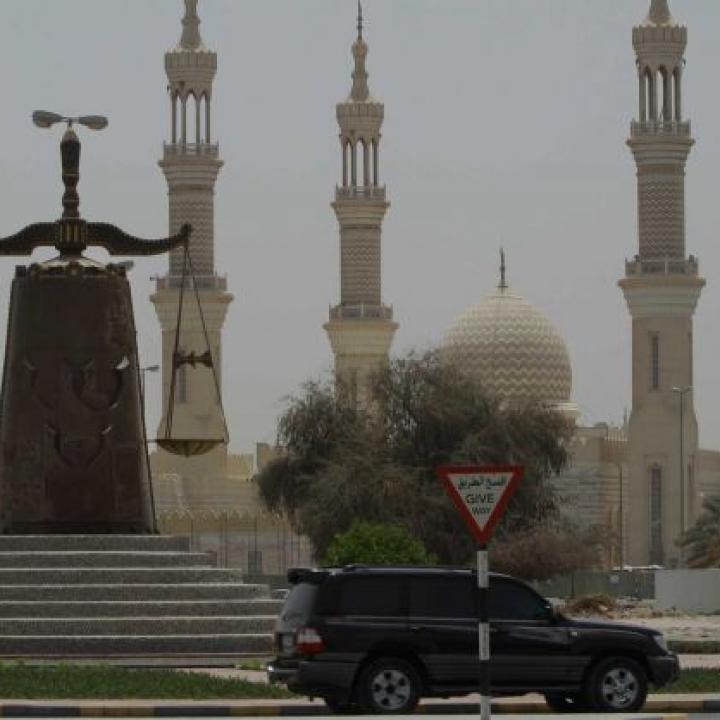
- Policy Analysis
- Policy Alert
UAE Arrests Highlight Challenges to U.S. Middle East Policy

Over the past few months, more than fifty Islamists have been arrested across the United Arab Emirates, a major oil producer and U.S. ally. The country's attorney-general stated this week that the detainees, all thought to be UAE citizens, had "revealed plans to jeopardize the security of the state" and were linked to "suspicious foreign parties and organizations." Put another way, they were arrested for demanding political reforms and receiving support from Egypt's ruling Muslim Brotherhood. Indeed, the chief of police in Dubai, the country's commercial hub, was more explicit about the issue last month, describing the "large number of Muslim Brothers in the Gulf states" and warning that "we have to be alert and on guard...for trouble."
Washington has so far been silent on the detentions. Even so, the UAE has been surprised by the international media reaction and apparently irritated that the Islamists -- described as members of a group called "al-Islah," meaning "reform" -- are being depicted as democracy activists. The UAE government regards itself as progressive even though it lacks a parliament (the Federal National Council, an advisory body, is chosen by 129,000 carefully vetted voters). It is also proud of its openness to foreigners, who make up an estimated 80 percent of the population of more than five million. Many expatriates regard Dubai and Abu Dhabi, the capital, as among the most pleasant places to live in the region, though the circumstances for foreign manual laborers are reportedly harsh.
The arrests suggest an increase in political dissidence in the UAE, reflecting the influence of changes in Tunisia, Egypt, and Libya. Last year, some secular activists were jailed for several months after signing a petition calling for an elected legislature, a demand that was regarded as "insulting the ruler." Apart from prison terms, the traditional Emirati way of dealing with such activists includes deportation and denaturalization. For example, some activists have been forced to become citizens of the Comoros Islands, a tiny archipelago off the east coast of Africa that is one of the smallest and poorest members of the Arab League.
Although the UAE government would no doubt prefer minimal public discussion of the arrests, this is not proving to be the case. Yesterday, the ruler of one emirate -- Ras al-Khaimah, which relies on Abu Dhabi for budgetary support -- vehemently criticized al-Islah for attempting to "destroy and offend" the country. "Reform means building the country, not destroying it," he argued. Interestingly, one of his own relatives is an Islamist activist currently under house arrest after calling for political openness. Meanwhile, the ruler of the emirate of Sharjah struck a more conciliatory tone, saying on television that it was "a matter of dealing with the situation, not a matter of punishment."
In testimony before the Tom Lantos Human Rights Commission in Washington last week, Michael Posner, the assistant secretary of state for democracy, human rights, and labor, spoke about Bahrain, a neighbor of the UAE. "President Obama has said that stable, democratic societies make the best partners and allies," he noted. Yet Washington now finds itself working closely with a new Egyptian administration that the UAE regards as a malevolent force. As tension continues over Iran's nuclear program, the United States needs continued access to the UAE's al-Dhafra Air Base and Jebel Ali port in order to mount patrols in the nearby Strait of Hormuz. In light of these circumstances, quiet diplomacy is probably the best way to defuse tensions in the U.S.-UAE relationship. But the contradictions are growing -- the Gulf's conservative Arab states are clearly not immune to the political vibrations shaking the rest of the Arab world.
Simon Henderson is the Baker fellow and director of the Gulf and Energy Policy Program at The Washington Institute.



